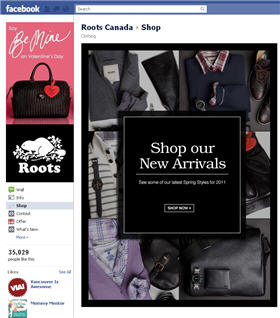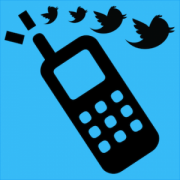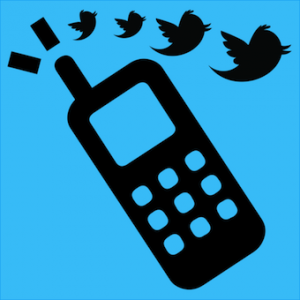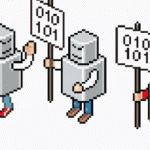 The recent events in Egypt mirror the uprising in Tunisia just a couple of weeks ago. Those events in turn remind us of similar anti-government protests in Iran in 2009. The thing that they all have in common, and that stands out, is that all were instigated online through social networks. Online activism in the region has been erupting anywhere you look online; Facebook, Twitter and YouTube specifically.
The recent events in Egypt mirror the uprising in Tunisia just a couple of weeks ago. Those events in turn remind us of similar anti-government protests in Iran in 2009. The thing that they all have in common, and that stands out, is that all were instigated online through social networks. Online activism in the region has been erupting anywhere you look online; Facebook, Twitter and YouTube specifically.
In 2009, after the presidential elections in Iran, thousands of Iranians took to the streets for days in protests and demonstrations that rocked the country. None of us in the outside world would have heard anything about those, and the subsequent human rights violations that occurred there, had it not been for Twitter and Facebook. Despite the fact that they were blocked, and no foreign reporters are allowed into Iran, some people managed to get on other proxy’s and tweet the reality of the situation. Foreign Media was reached thanks to Twitter, and made the world aware of the dire situation there.
Fast-forward to 2011, and barely two years later, Tunisians took to the streets by the thousands in anti government protests. They succeeded; President ZineAbidine Bin Ali fled the country. There, as in Iran, social networking sites were being actively blocked by the government, but that did not stop many from bypassing those and posting and sharing videos of the revolts on YouTube, Facebook and Twitter. Facebook though, more than Twitter, became an indispensable resource for tracking the minute-by-minute development of the situation. The online community rallied with them in support, spreading and sharing the news and videos coming from Tunisia proving that Social media tools are powerful ways to communicate. Another thing to take note of is according to Facebook, they got thousands more users in that one month since the Tunisian uprising than ever before.
Inspired by the revolution in Tunisia, Egyptians took to the streets on January 25th. They came out in the thousands. There hadn’t been protests of this magnitude in Egypt since the 1970’s. All this would not have been possible had it not been for a simple Facebook page calling for all Egyptians to demonstrate and protest against alleged police brutality in Egypt, on the national holiday of Police Day. All day during the demonstrations people in Egypt were tweeting and re-tweeting the events happening around them, journalists and citizens alike. Despite the fact that the events in Egypt were not headline news on most TV channels in the region or internationally, it was indeed all over Twitter. The government keeps blocking Twitter as well as other social networking sites, but people are finding ways around them and continue to spread their message.
As this blog post is being written, protestors are still demonstrating in the streets of Egypt. Social Media has obviously been playing a major role in not only organizing such events, but also in spreading the word about them, and giving a rise in Citizen Journalism.
All those anti government uprisings in the region leave me wondering what’s next in Social Media when it involves politics. Online activism is translating into real results.
What, in your opinion, are the affects of Social Media in the Middle East, specifically when it comes to speaking out against something or someone?
 Have you ever sat down and wondered who in the world makes the most use of Social Media in current times? Maybe it has always been so and it’s just become really noticeable now, but due to tumultuous events in the world, namely the revolutions in the MENA region, Journalists seem to be all over Facebook and Twitter. Not only that, they also take the most advantage of what is said and posted on social networks the most in their work.
Have you ever sat down and wondered who in the world makes the most use of Social Media in current times? Maybe it has always been so and it’s just become really noticeable now, but due to tumultuous events in the world, namely the revolutions in the MENA region, Journalists seem to be all over Facebook and Twitter. Not only that, they also take the most advantage of what is said and posted on social networks the most in their work.

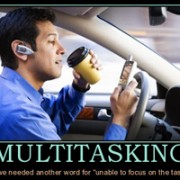
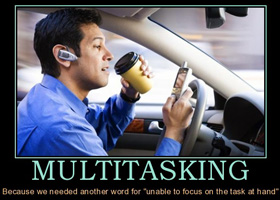 A molecular biologist compares a person driving and texting to a person in the office who is simultaneously checking emails, writing up a document, and surfing the web. He claims they are essentially doing the exact same thing. He also claims that the brain is not made to multi task, and it just doesn’t exist, as much as it is highly praised when someone claims they actually can multi task. He gives another example: You may have noticed that when you are working on something, and have music in the background, you finish work and realize the CD is finished but you can’t recall any of the songs you heard.
A molecular biologist compares a person driving and texting to a person in the office who is simultaneously checking emails, writing up a document, and surfing the web. He claims they are essentially doing the exact same thing. He also claims that the brain is not made to multi task, and it just doesn’t exist, as much as it is highly praised when someone claims they actually can multi task. He gives another example: You may have noticed that when you are working on something, and have music in the background, you finish work and realize the CD is finished but you can’t recall any of the songs you heard.
